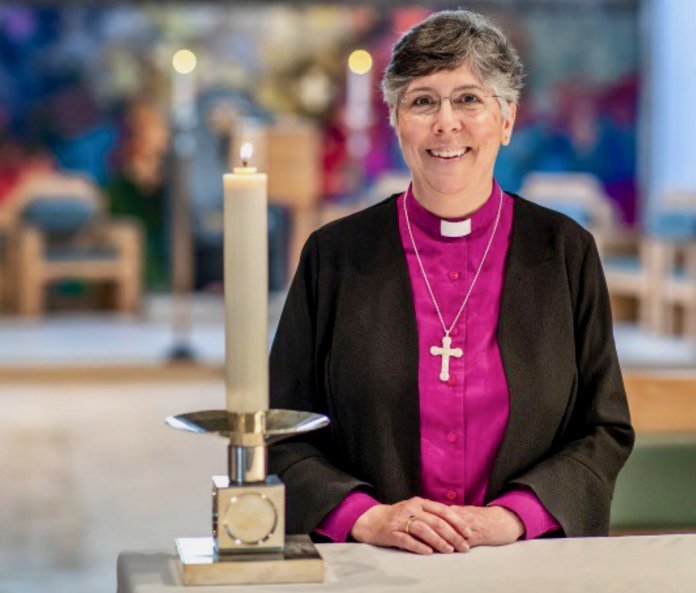The attack on a mother and her children in Clapham last week was shocking and brutal. Like others in churches across the country, I have been praying for those affected, and I hope to see the responsible person arrested and brought to justice swiftly. Because the alleged perpetrator has been reported as someone seeking asylum in the UK on grounds of conversion to Christianity, some, including senior politicians, have questioned the role of churches and other faiths in supporting those who seek our help and protection here.
It is important to emphasise at the outset that it is the role of the Home Office, not of churches, to assess and vet these claims.
I arrived in this country myself as a refugee from Iran, following the events of the Revolution of 1979 during which the small Anglican Community experienced much persecution and my brother was murdered. I know that behind every statistic is a human story and I have a sense of the real trauma that many asylum seekers have experienced.
Christians are called to follow the example of Jesus who throughout the Bible focuses his love and care on the most vulnerable and marginalised people in society.
Commentators this week have largely ignored the fact that churches do this by helping disadvantaged people of all backgrounds – including asylum seekers – to eat, to sleep, to worship, to find shelter and to be connected to the services which can support them. As a Christian leader I make no apology for our involvement in supporting people who are often deeply vulnerable and traumatised.
But churches have no power to circumvent the Government’s duty to vet and approve applications – the responsibility for this rests with the Home Office.
It is the calling of clergy to baptise and bring people to God. When a candidate who is an asylum seeker is prepared for baptism, the guidance given to clergy includes the need for discernment: “to be ‘wise as serpents and innocent as doves’. Clergy must be confident that those seeking baptism fully understand what it signifies.”
Religious ministers from all denominations will occasionally, after careful assessment, provide statements of support to individuals seeking asylum, but it is wrong to think of this as some sort of magic ticket. The notion that a person may be fast-tracked through the asylum system, aided and abetted by the Church is simply inaccurate. Home Office guidance says “ultimately, evidence even from a senior church member is not determinative”. A recent finding of the Upper Tribunal held that “the weight to be attached to such evidence is for the judicial fact-finder”.
Globally, persecution of Christians is on the rise. In 2021, The Pew Institute said that 190 of 198 countries and territories analysed saw religious groups experience at least one form of harassment. The report authored by the now Bishop of Winchester, which remains current Government policy, cites figures estimating that one third of the world’s population suffers from religious persecution in some form and that 80 per cent of the world’s persecuted religious believers are Christians.
Responsibility to assess the risk to an individual of persecution on the grounds of faith is that of the Home Office. Christian leaders have worked with officials to improve understanding of faith-based persecution and Christian identity, and we will continue to do so. We have also offered to work with the Government on ensuring returns policies are developed so that they are safe and more likely to be effective in the long-term.
Bishops in the Lords have consistently supported the Government’s objective of stopping people crossing the Channel in small boats. In the recent debate on The safety of Rwanda Bill, the Archbishop of Canterbury said this was a disagreement about means rather than ends. It is the role of the Lords to improve and amend, not to block, and that is what we are committed to doing through cross-party amendments to the Bill. The scourge of illegal people smuggling must stop, but it cannot be done so by vilifying those who through misfortune already bear such a high material and financial cost.
We share the former Home Secretary’s concern about the need to “break criminality”, but we question the need to do so by breaching international and domestic law. Alternatives to offshoring our care for those seeking sanctuary have been offered many times and by credible voices.
We are not politicians, and we know that to be involved in political debate can be bruising. But those who have claimed a link between the abuse of our asylum system and the action of bishops in Parliament are simply wrong. It is saddening to see this being implied by former holders of senior ministerial office, who have had opportunity but not sought to raise these concerns with senior clergy before.
The plight of refugees the world over is a shared responsibility and one we must shoulder together – locally, nationally, globally. We must do so not by demonising those who arrive on our shores, but by recognising our shared humanity and, as Christians would put it, seeing in others the face of Christ.



